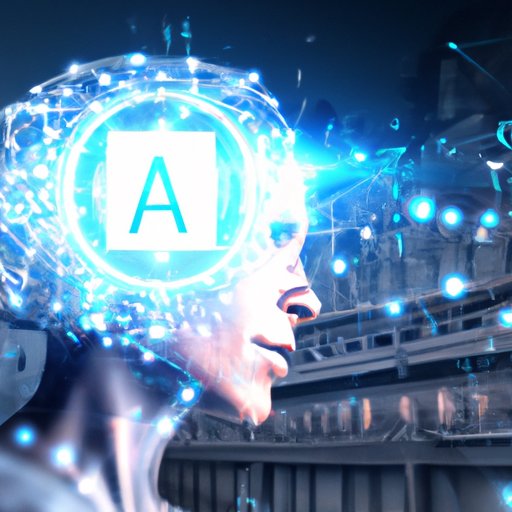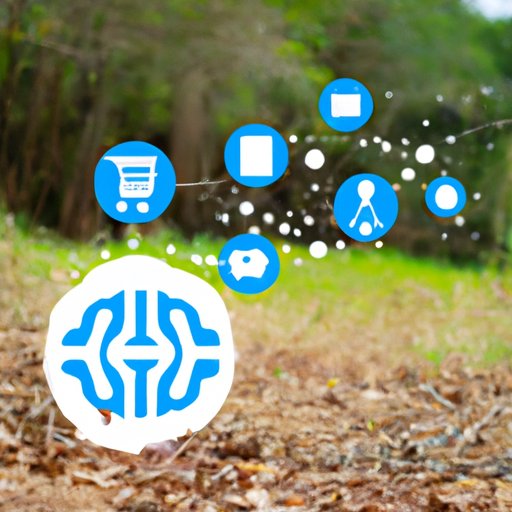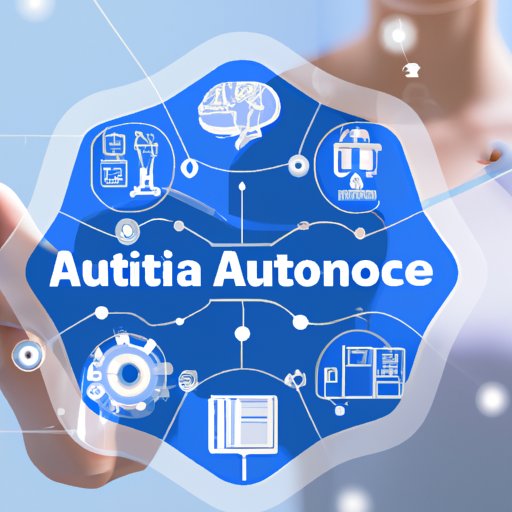Introduction
Artificial intelligence (AI) has become increasingly important in our modern world. From self-driving cars to smart home assistants, AI technology is being used to create solutions that make our lives easier, safer, and more efficient. But why do we need AI? In this article, we will explore the various benefits of AI, from automating mundane tasks to improving healthcare outcomes.

Exploring the Benefits of AI in Everyday Life
AI technology can be used to automate mundane tasks, freeing up time and energy for more meaningful pursuits. For example, AI-powered chatbots can help customers quickly find answers to their questions without having to wait for a live customer service representative. AI can also be used to optimize workflows, helping businesses streamline their operations and reduce costs.
AI can also be used to analyze large amounts of data quickly and accurately. This enables companies to gain valuable insights that can be used to improve products and services. For instance, AI-powered analytics can be used to identify correlations between customer behaviors and product features, allowing companies to tailor their offerings to better meet customer needs.
How AI is Revolutionizing Healthcare
AI is revolutionizing healthcare by enabling doctors to diagnose and treat illnesses more effectively. AI-powered algorithms are able to detect signs of disease early on, which can dramatically improve patient outcomes. AI can also be used to monitor patients’ vital signs and alert medical staff if changes occur.
In addition, AI can help enhance security and privacy in healthcare settings. AI-powered systems can be used to detect anomalies in medical records and flag suspicious activities, ensuring that sensitive information remains secure. AI can also be used to detect fraudulent claims and insurance fraud, reducing the cost of healthcare delivery.
AI is also being used to improve learning outcomes in educational institutions. AI-powered applications are able to track students’ progress and provide personalized feedback, enabling teachers to tailor lessons to individual students’ needs. AI can also be used to assess student performance and generate insights that can be used to improve teaching methods.

AI and Environmental Protection: A New Frontier
AI is also being used to tackle environmental issues. AI-powered systems can be used to monitor air and water quality, as well as detect changes in weather patterns. AI can also be used to develop renewable energy sources, such as solar and wind power, and to reduce energy consumption through more efficient building designs.
However, there are still many challenges associated with using AI for environmental protection. For example, AI-powered systems require large amounts of data to operate effectively, and it can be difficult to obtain accurate and reliable data about environmental conditions. Additionally, AI-based solutions may not be able to account for all of the complexities of the natural environment.
Conclusion
In conclusion, AI technology offers numerous benefits for everyday life, from automating mundane tasks to improving healthcare outcomes. AI can also be used to protect the environment by monitoring air and water quality and developing renewable energy sources. While there are still challenges associated with using AI for environmental protection, the potential benefits are immense. As AI technology continues to advance, it will likely become an even more integral part of our lives.
(Note: Is this article not meeting your expectations? Do you have knowledge or insights to share? Unlock new opportunities and expand your reach by joining our authors team. Click Registration to join us and share your expertise with our readers.)
